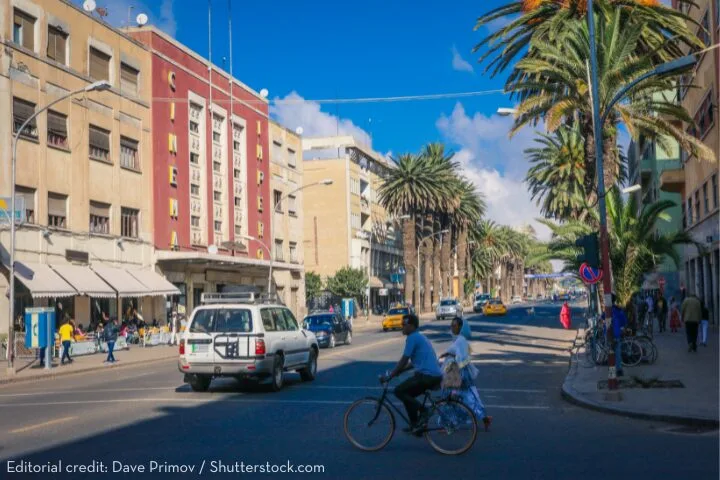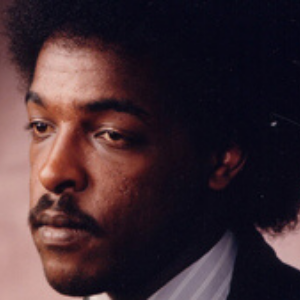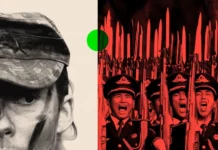Source: PEN America
How repressive does a country have to be to earn the nickname “Africa’s North Korea”? Consider this: Eritrea, roughly the size of Ohio, with a coastline stretching down East Africa from Sudan to Djibouti, is a fortress-like nation without physical walls—a military state enforcing indefinite national service despite the absence of war. From 2019 to 2023, Eritrea ranked among the Top 10 jailers of writers globally in PEN America’s annual Freedom to Write Index and the worst jailer of journalists in sub-Saharan Africa according to the Committee to Protect Journalists.
To this day, at least 12 writers and journalists are still detained in the country; most of them have been held without trial since 2001. They are the longest-detained writers and journalists in the world: journalist and playwright Dawit Isaak, journalist and columnist Medhanie Haile, journalist and comedian Temesgen Ghebreyesus, poet and journalist Amanuel Asrat, writer and journalist Idris Said, playwright and journalist Fessehaye ‘Joshua’ Yohannes, journalist Yousuf Mohammed Ali, video journalist Seyoum Tsehaye, journalist Dawit Habtemichael, journalist Said Abdelkadir, journalist Mathewos Habteab, and Sahle ‘Wedi Itay’ Tsegazeab. Tigre-language singer/songwriter Idris Mohammed Ali was arrested without charge in 2005 and has been detained incommunicado since.
There was a moment in the mid-1990s, following a 30-year war for independence from Ethiopia, when Eritrea seemed to be on the path to becoming a thriving, peaceful country. In the capital, Asmara—a UNESCO World Heritage Site with marvelous Art Deco buildings—writers, journalists, poets, and musicians gathered in the shaded terrace cafés of the palm tree-lined Harnet Avenue to sip cappuccinos and discuss the future. Newspapers thrived, and the country’s one university filled with young men and women eager to contribute to Eritrea’s growth.

Then, in 1998, Eritrea’s first president, Isaias Afwerki, suddenly took the country into another brutal and costly war with Ethiopia. In a recent Zoom interview from his London apartment, poet and writer Awet Fissehaye, Executive Director of PEN Eritrea in Exile, explained what happened next.
“Once the war was over in 2000, people weren’t happy with how the war had gone. Afwerki insisted we had won, but we knew the outcome was not in Eritrea’s favor. So, a group of 15 veterans of the independence struggle, some government cabinet members, published an open letter calling for government reform. Several independent newspapers published the letter, and the Afwerki government began to lose control of the narrative.”

On September 18, 2001, just a week after the September 11 attacks, while global attention was focused on the United States, President Afwerki shut down all private news outlets in Eritrea and ordered the arrest without trial of those who signed the open letter, along with dozens of journalists, writers, poets, and other intellectuals. No trials have ever been held, and arrests continue to this day.
The first time Fissehaye fled Eritrea, he encountered hyenas, was robbed by Sudanese security forces, and spent time in a refugee camp rife with Eritrean secret agents who routinely abducted fellow refugees, before finally arriving in Sudan. After a year, he returned to Asmara for personal reasons, only to be arrested, imprisoned, and tortured for 14 months in a prison of windowless shipping containers and underground prisons. Once released, Fissehaye fled again only to be robbed by human traffickers, sold to smugglers, detained in a Libyan prison, and narrowly survive drowning while crossing the Mediterranean.
In his masterful essay, I Did Not Make That Decision out of Bravery, Fissehaye writes, “Arriving in the UK was not a panacea. The hardships and torture remained engraved in my mind. These things do not fade quickly from memory: human bodies used to put out cigarettes, heads being cleaved with spades or AK-47 muzzles, threads of maggots dropping from neglected wounds.”
Fissehaye believes that PEN Eritrea in Exile, an organization of writers and journalists, has a crucial role in stopping the Afwerki government from reshaping the country’s narrative, just as those who remain in prison tried to do before their arrest. “We are fighting for the truth against a government trying to erase these people from the country’s memory. It’s like Orwell’s 1984; if someone is not on its side, the government wants them to vanish from everything. We won’t let that happen.”
Of all those who have vanished into Eritrea’s network of secret prisons, Fissehaye feels the most profound personal connection to Amanuel Asrat, who he believes must still be alive. “Amanuel was the Zemen newspaper’s chief editor and a poet. He used to mentor and encourage young poets and invite us to literary events he’d organize. He saw something in us and told us he had high hopes and expectations—it was a wonderful thing to receive such encouragement from a great poet. Amanuel wanted you to be on top of your ability…. I don’t believe that his strong character could be broken. Instead, I believe he will philosophize and give meaning to what is happening to him. He will find reasons to live and breathe and do it well.”
The entirely volunteer-run PEN Eritrea team (often holding day jobs unrelated to the professions they spent years building back home) is committed to preserving and sharing the truth about their country. They rigorously fact-check information released by the Afwerki government, share updates on social media, host virtual events for diaspora Eritreans, support the publication of exiled Eritrean writers, and digitize local Eritrean newspapers from the early 2000s.
Fissehaye, along with his friends and colleagues, holds onto the hope that one day, they will return home to a new government, free the prisoners, and reunite with those who have survived. “We all know that the government will fall. We don’t know when, but as we’ve seen in Syria, it can happen in as little as 11 days,” he concludes.






